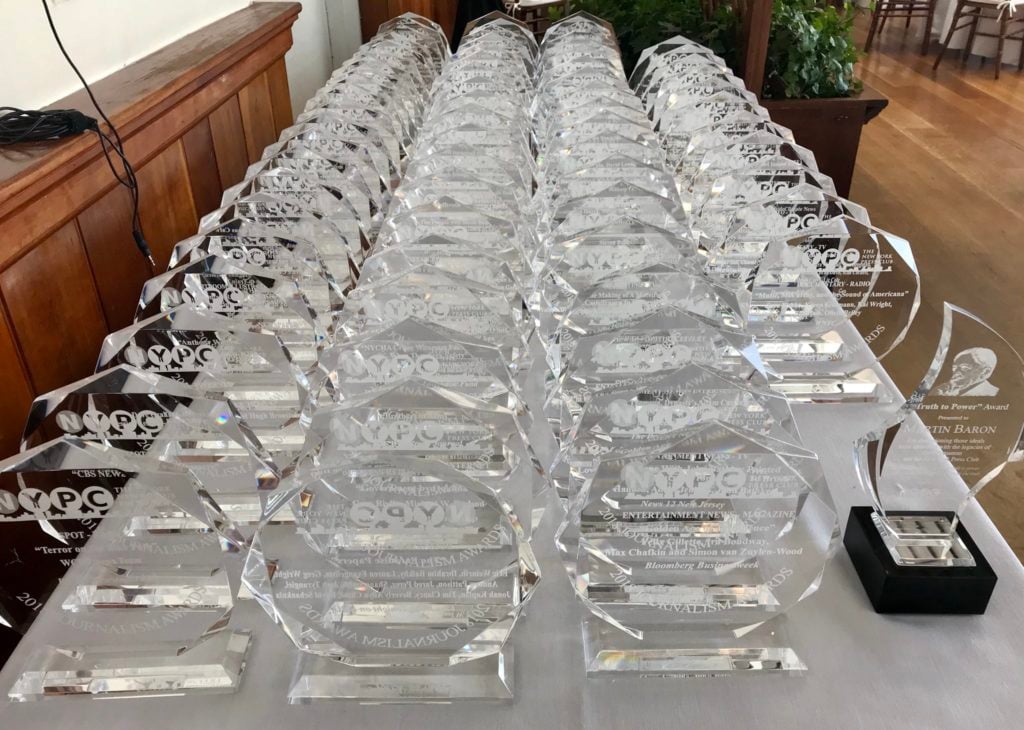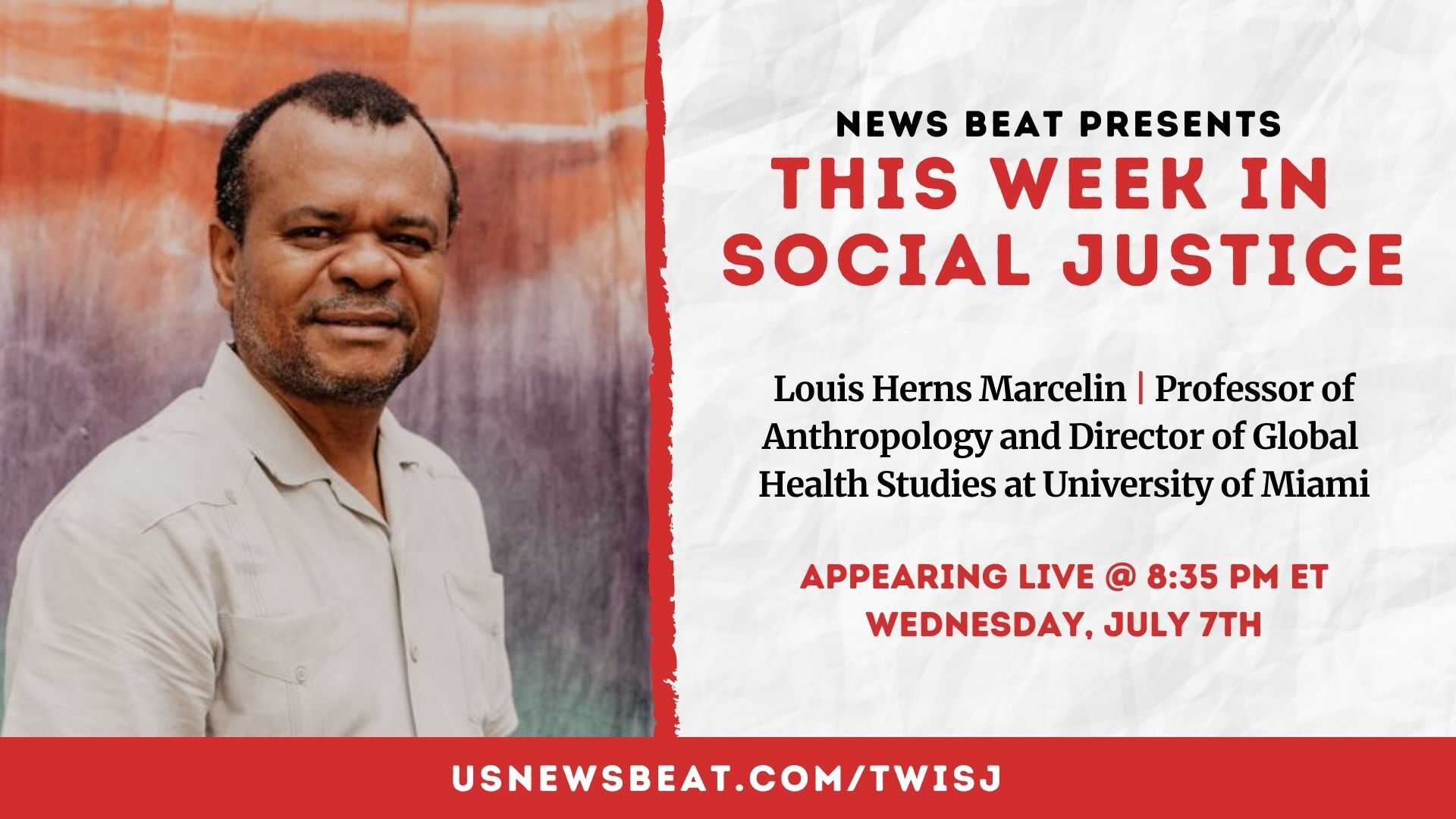Since the slaying of George Floyd in May the country has been in a suspended state of rebellion, with protests erupting in major cities, white-dominated suburbs, and rural neighborhoods.
While it was Floyd’s death that touched off the most sustained racial equality demonstrations since 1968, activists are increasingly calling on people to remember, and shout, the names of Black women and girls killed by police.
Those calling for justice argue that women victims historically receive far less attention than men who've been gunned down by law enforcement.
In our latest episode of News Beat podcast, “#SayHerName: Confronting 400 Years Of State Violence Against Black Women,” police misconduct attorney and activist Andrea J. Ritchie documents the historical roots of oppression. In vivid detail, the author of "Invisible No More: Police Violence Against Black Women and Women of Color” recounts the deaths of various women and girls, and pervasive sexual assaults by those sworn to serve and protect communities.
Listen to the podcast by subscribing to News Beat on your favorite pod app.
Ritchie co-authored a 2015 report dubbed "Say Her Name: Resisting Police Brutality Against Black Women.” It was produced by the nonprofit African American Policy Forum, which a year earlier coined the term #SayHerName to raise awareness about state violence against Black women.
In this special bonus clip from our interview, Ritchie discusses the birth of #SayHerName and its significance, especially as the police who killed Breonna Taylor in Louisville, Kentucky have yet to be charged (as of this publication). Below is a transcript, edited for clarity.
Andrea J. Ritchie
"I wasn't there at the beginning. The African American Policy Forum coined the hashtag #SayHerName. My understanding of what happened, and I was at the demonstrations where this happened, was in the immediate aftermath of Mike Brown's killing, and a couple months after Eric Garner's killing, there were massive street demonstrations in New York City, not of the scale and length of time that they are now, but at that time they were the largest and longest-running that I had been part of almost 20 years in New York City. And people were chanting Eric Garner's name and Mike Brown's name and the names of other men, and meanwhile, many of us we're saying, 'But Michelle Cusseaux is a Black woman who was killed three days after Mike Brown. Why are we not saying her name?'
"'Kayla Moore is a Black woman, a Black trans woman who was killed in 2013. Why are we not saying her name?' Then by September other Black women had been killed. Tanisha Anderson was a Black woman who was killed in October. So there was lots of names that we could have been saying. Rekia Boyd had been killed in 2012 by police in Chicago. And we were not saying her name either, even though there had been no justice in her case. And so the African American Policy Forum contingent started, I think as a reaction to the names they were hearing around them, chanting Black women's names and saying, 'Say her name.' And then that became a hashtag.
"Where I came in as I partnered with Kimberlé Crenshaw, and the folks at African American Policy Forum to co-author a report by that name, '#SayHerName: Resisting Police Brutality Against Black Women,' but we really laid out—first of all gave folks a number of names to say, and stories behind them, and descriptions of the Black women and queer and trans people who had been killed, so that we could also understand who they were alive and not just the moment of their death. And we also sort of identified some main areas in which that violence happens, and noted that also it's not only lethal violence that we're talking about, we're talking about sexual violence, we're talking about physical violence, we're talking about punishment of sexual and gender nonconformity, and offered some initial recommendations based on those experiences. So that was the report.
"We had a vigil, which was I think the first one I certainly had ever been to where all of the family members who were there were family members of women who had been killed by police. I think the #SayHerName movement, as African American Policy Forum has evolved it, has really centered the families of Black women killed by police, because those families were saying that not only do their daughters or sisters or nieces not get the attention, or aunts, not get the attention that other folks get, but they as families don't get the support that other families get when their loved ones die at the hands of police. And so they felt, not only sort of the violence of the invisibility of their loved one's death, but also the isolation of not having a movement that immediately kind of sprung up around them, and to support them in the ways that the families and supporters of Black men who were killed by police had experienced, and that they weren't given a mic to speak at rallies. They would go to rallies about killings of Black men and say, 'I'm here about my daughter, here's my sign, here's who I am to raise my daughter's memory' in this larger context and just weren't even being given the opportunity to do that.
"So my understanding is that the African American Policy Forum, #SayHerName, the mothers of #SayHerName, have been organizing annually to get together with those families and figure out how to support them. In terms of more broadly, I would also lift up that a lot of people have organized under that hashtag, including BYP100, who organized a huge campaign in Chicago under the hashtag #SayHerName to demand justice for Rekia Boyd that they won. They won that the officer who killed Rekia Boyd was terminated and he resigned two days before he was gonna get fired. And that's significant because he got to keep his pension. But he was about to be fired, which is also significant, and that was the product purely of Black queer youth and allied youth organizing in demand for justice for Rekia Boyd. BYP100, Black Lives Matter, the Movement For Black Lives and other allied organizations held national days of action three years in a row.
"In fact, the third year was a week of action around [ending] state violence against Black women and girls under that sort of overall banner and rubric. And then I do want to lift up that also out of that time came a network now of 20 organizations who organize across the country to end state violence against Black women, girls, trans and gender nonconforming people, called the In Our Names Network. And in some ways, we were calling it that to sort of resolve this question of gender nonconformity. Right? That #SayHerName was being experienced by trans folks and perhaps not as expansive or inclusive as it could be, and the In Our Names Network was founded in 2016. It created a website at InOurNamesNetwork.com that is a resource hub that gives folks all kinds of information, tools and opportunities for action to address state violence against Black women, girls, and trans people."



.jpg)





